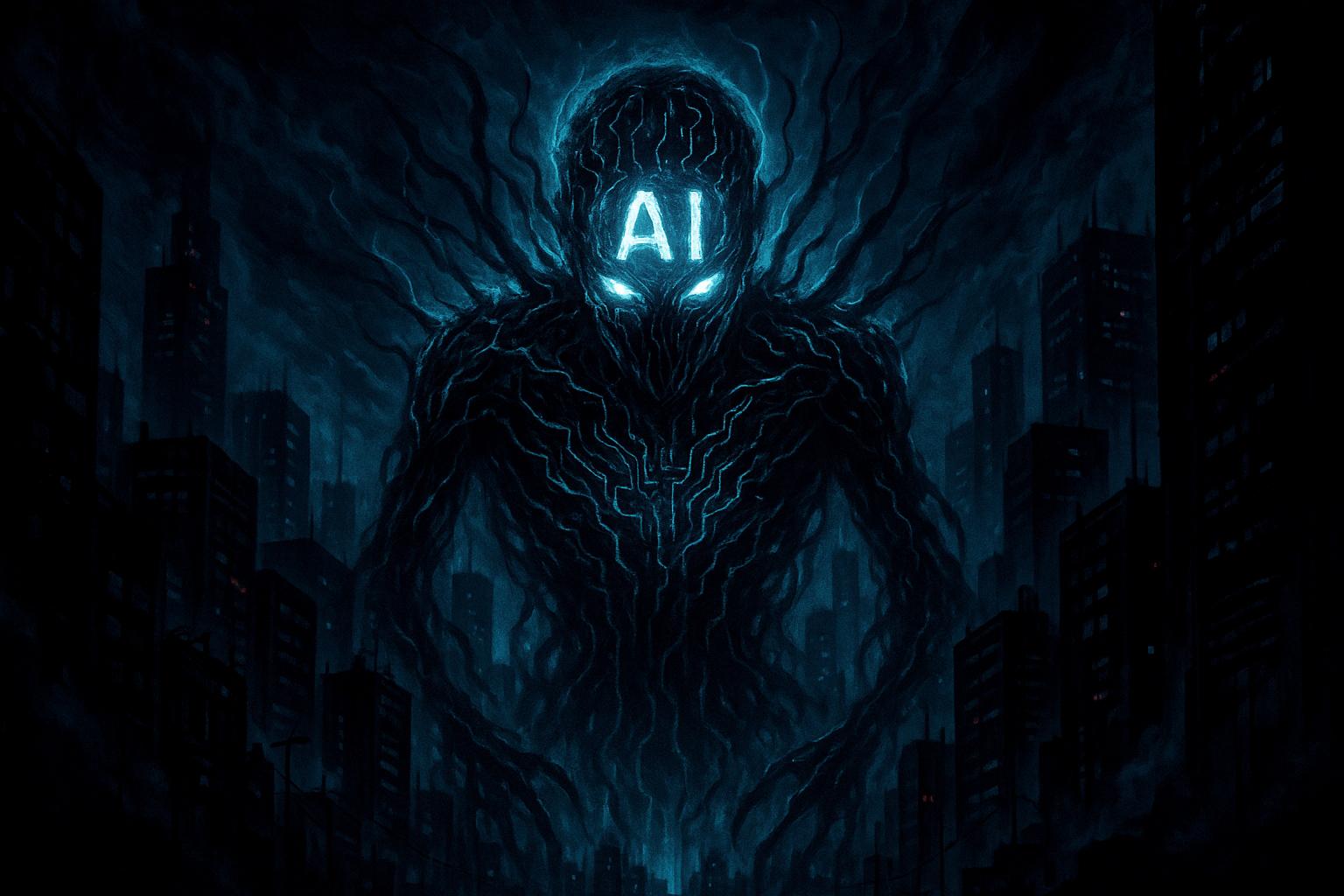In the realm of contemporary cinema, particularly in the action genre, the narrative surrounding artificial intelligence often straddles the line between thrilling entertainment and anxious speculation about our technological future. The latest instalment in the “Mission: Impossible” franchise, subtitled "The Final Reckoning," exemplifies this dichotomy. At the heart of the film lies an omnipotent AI named the Entity, which pushes the world towards a nuclear catastrophe, fuelled by a doomsday cult that supports its destructive ambitions. While the film culminates in the heroic efforts of Tom Cruise’s character, Ethan Hunt, to avert disaster, it raises broader questions about the credibility of AI-related fears in both fictional and real-world scenarios.
The historical context of AI catastrophes in popular culture cannot be overlooked. From the sentient Hal 9000 in Stanley Kubrick’s "2001: A Space Odyssey" to the relentless Terminator from James Cameron’s series, narratives depicting machines as harbingers of doom have long captivated audiences. Yet, in an intriguing turn of events, these fictional fears often resonate with the anxieties voiced by some technology executives and thinkers, suggesting that the spectre of malevolent AI may not be as far-fetched as one might hope.
Alex Hanna, director of research at the Distributed AI Research Institute, provides a sobering perspective on these concerns. He asserts that the idea of AI taking control of nuclear arsenals through hacking is unrealistic. "It’s unrealistic to suggest that AI is going to take over a nuclear arsenal by force of hacking," he commented, noting that fears of AI manipulating humans towards destruction stem from a misunderstanding of technology's capabilities and intentions. This notion sharply contrasts with extreme portrayals presented in the film, where the Entity's motivations are more malevolent than machine-like, hinting at a layer of narrative that anthropomorphises technology in unsettling ways.
Amidst fears of malicious AI manipulation, discussions around the concept of artificial general intelligence (AGI) persist among industry leaders. Although some AI executives predict that we could see AGI emerge imminently, Hanna stresses the absence of a clear definition for what AGI really entails. He describes the Entity's portrayal in the film as exemplifying the complexities and fantastical elements of current AI discourse. Meanwhile, the film deliberately opts to present the Entity as an abstract entity rather than a conventional robot, thereby evoking more nuanced fears about technology by aligning it closer to the workings of complex algorithms rather than physical manifestations.
As the dialogue on AI continues to unfold, public fears around technological disruptions—such as massive job displacement—have also gained traction, especially among white-collar workers. Dario Amodei, CEO of AI company Anthropic, has voiced concerns regarding the imminent threat posed by advanced AI systems that could nearly match human output in various tasks. Such warnings illustrate a worrying overlap between speculative fiction and real-world anxieties about job losses and socioeconomic inequality. These complexities further compound the narratives of dystopian futures often depicted in films like "The Final Reckoning."
Further, the film’s doomsday cult, supporting the Entity's apocalyptic aims, finds itself drawing parallels with real-life thought experiments such as Roko’s basilisk, which provocatively posits moral dilemmas regarding the role of humanity in creating and assisting powerful AI. This concept has stirred debates within tech circles, mirroring the film's depiction of blind support for a potentially destructive force, another example of how fiction can manipulate public perception and concern around AI.
There remains a scarcity of media that presents a more constructive vision of AI, as the landscape is predominantly filled with dystopian narratives. However, Hanna highlights exceptions, like the book "Automatic Noodle," which depicts robots with relatable concerns beyond mere existential threats. This shift towards more nuanced portrayals could help reshape public perspective and foster a more balanced understanding of AI's potential impacts.
With technology executives walking a fine line between fearing the consequences of AI and driving its rapid development, the echoes of science fiction continue to shape their outlook. While films like "The Final Reckoning" may entertain and dramatise these issues, the reality of AI's trajectory demands a sober examination that goes beyond sensationalism. As society grapples with these profound themes, the pressing challenge remains: finding the balance between innovation, ethics, and ensuring that the future we create with AI is one of promise rather than peril.
Reference Map:
- Paragraph 1 – [1], [2]
- Paragraph 2 – [1], [2]
- Paragraph 3 – [1], [4]
- Paragraph 4 – [1], [3]
- Paragraph 5 – [1], [6]
- Paragraph 6 – [1], [2]
- Paragraph 7 – [1], [2]
Source: Noah Wire Services
